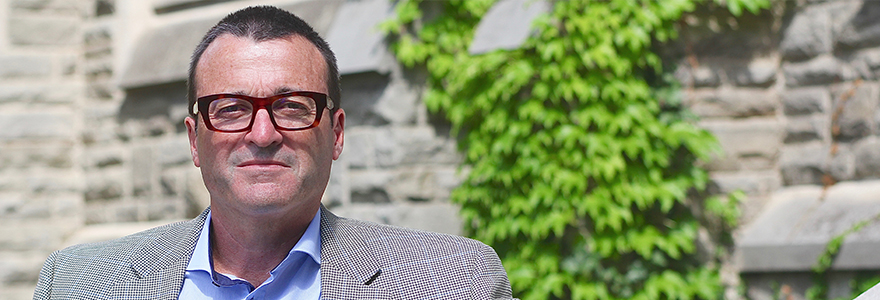Feature: Exploring the ethics of human challenge studies for COVID-19

By Crystal Mackay, MA'05
In his nearly 25 years of studying research ethics, Dr. Charles Weijer says this is the most difficult ethical question he’s ever encountered. He and a team of international researchers were tasked with developing guidance for the World Health Organization (WHO) on the ethical permissibility of purposefully infecting informed and willing healthy volunteers with COVID-19 in order to test a vaccine.
Called Human Challenge Studies, trials of this kind have been carried out for decades in highly controlled laboratory environments for diseases like malaria, influenza and cholera to test potential treatments or vaccines.
Dr. Weijer, Professor in the Departments of Medicine, Epidemiology & Biostatistics and Philosophy, was involved in the early ethical considerations for these studies. In 2015, he and colleagues published an ethical framework for human challenge studies that included a clear limit on risk to participants: participants may not be exposed to a potentially fatal disease unless there is a curative treatment.
“Unfortunately, there is no curative treatment for COVID-19 at the moment and it is a disease associated with a risk of mortality, and certainly serious illness,” Dr. Weijer said. “At first, this was a real impediment for us, is there any way in which the risk of these studies could be justified for COVID-19?”
As part of The Working Group for Guidance on Human Challenge Studies, Dr. Weijer along with 13 other international experts began working on this question in late March.
“Even with all of the important public health interventions that have been implemented, there is a strong sense that we, as a society, are not going to get past the COVID-19 threat until there is a widely available and effective vaccine for the virus,” he said. “This led a lot of people to start considering how we could speed up vaccine development, and might human challenge studies be an important part of that?”
He says it is the nature of the pandemic that changes the game. When there is circulating COVID-19 in a community, there is a significant risk for an individual to be infected with the virus outside of the study. If a research participant has a high probability of contracting the virus regardless of their research participation, it makes purposefully infecting them more ethically permissible.
“This helps explain why it is potentially more permissible to do riskier studies in the face of a pandemic. If people have a good chance of being infected outside of the human challenge study, it offsets the risk of them being exposed for research purposes,” he said.
For Dr. Weijer, this is the most important, ethically necessary requirement outlined in the WHO document. The document outlines seven other requirements, including exceptionally high standards for informed consent and a requirement that these studies only be conducted among individuals who have the lowest risk of developing complications of COVID-19 – healthy individuals between the ages 18 and 29.
“From my perspective, there are a highly limited set of circumstances in which COVID-19 challenge studies may be done ethically. These studies may only be conducted with healthy young volunteers who are exceptionally well informed about the risks and also where they had a substantial chance of contracting COVID-19 outside of the study,” he said. “Those are the only circumstances in which I would endorse COVID-19 challenge studies.”








